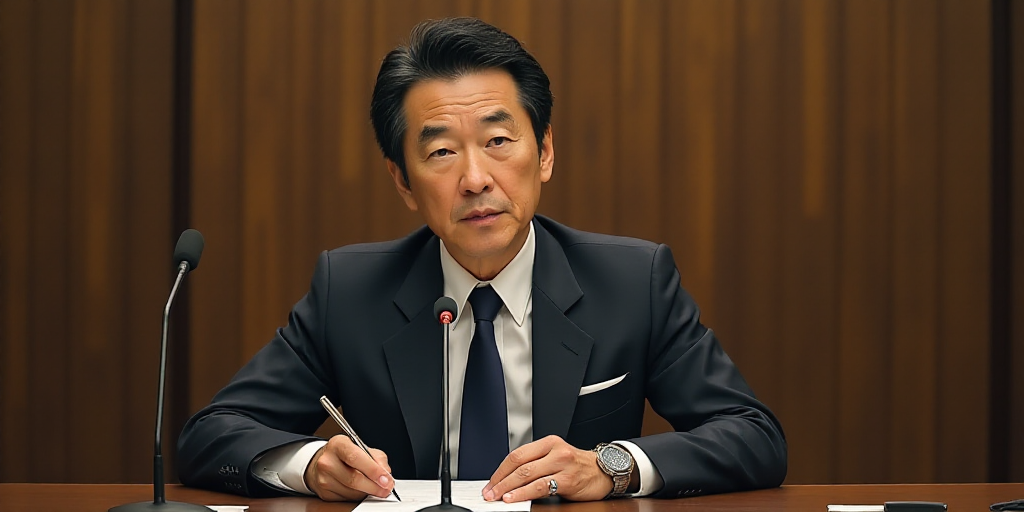Background on Kazuo Ueda and the Bank of Japan
Kazuo Ueda is the governor of the Bank of Japan, a central banking institution responsible for managing Japan’s monetary policy. Established in 1897, the Bank of Japan plays a crucial role in maintaining financial stability and promoting economic growth within the country. As governor, Ueda leads the bank’s efforts to ensure price stability and sustainable economic expansion.
Ueda’s Statement on Interest Rates and Inflation
During a press conference following a meeting of financial leaders from the G7 and G20 in Washington, Kazuo Ueda announced that the Bank of Japan will continue raising interest rates if inflation converges towards its 2% target, as projected. However, Ueda emphasized that the bank will review these projections “without preconceptions” while monitoring various available data.
Contextualizing the Bank of Japan’s Role
The Bank of Japan’s primary objective is to maintain price stability, which is essential for a healthy economy. By setting an inflation target of 2%, the bank aims to avoid deflationary pressures that have plagued Japan’s economy for decades. Raising interest rates is one of the tools at the bank’s disposal to control inflation and ensure sustainable economic growth.
Impact on Japan’s Economy and Global Markets
The Bank of Japan’s decisions on interest rates have significant implications for both the Japanese economy and global financial markets. Higher interest rates can lead to increased borrowing costs for businesses and consumers, potentially slowing economic growth in the short term. However, if managed carefully, it can also contribute to long-term stability and prevent excessive inflation.
- Japan’s Economy: Higher interest rates may lead to a stronger yen, making Japanese exports more expensive and potentially hurting export-oriented industries. Conversely, it can also attract foreign investment and support the overall stability of Japan’s financial system.
- Global Markets: The Bank of Japan’s monetary policy decisions can influence global financial markets, as investors often look to Japan as a bellwether for economic trends. Changes in interest rates can affect capital flows, exchange rates, and the performance of various asset classes worldwide.
Key Questions and Answers
- What is the Bank of Japan’s primary objective? The Bank of Japan aims to maintain price stability, which is crucial for a healthy economy. By targeting an inflation rate of 2%, the bank seeks to avoid deflationary pressures that have affected Japan’s economy for decades.
- How do interest rate decisions impact the Japanese economy? Higher interest rates can increase borrowing costs for businesses and consumers, potentially slowing economic growth in the short term. However, if managed carefully, it can contribute to long-term stability and prevent excessive inflation.
- What are the implications of the Bank of Japan’s decisions for global markets? The Bank of Japan’s monetary policy decisions can influence global financial markets, as investors often view Japan as a barometer for economic trends. Changes in interest rates can affect capital flows, exchange rates, and the performance of various asset classes worldwide.






